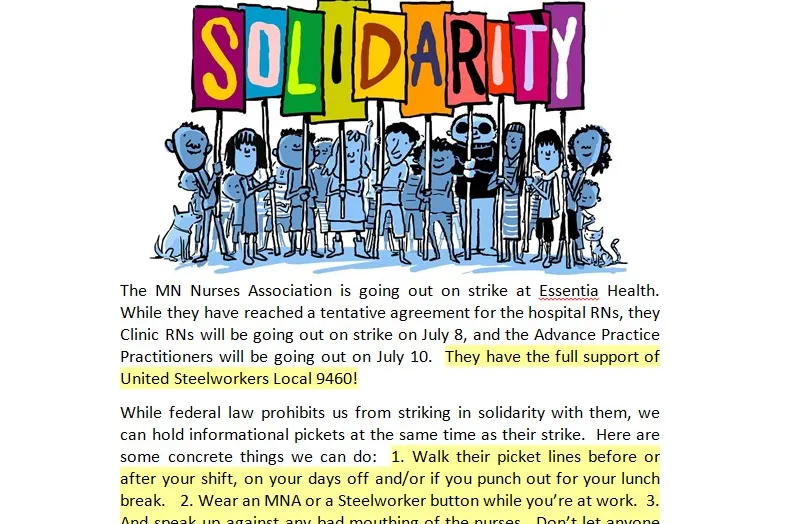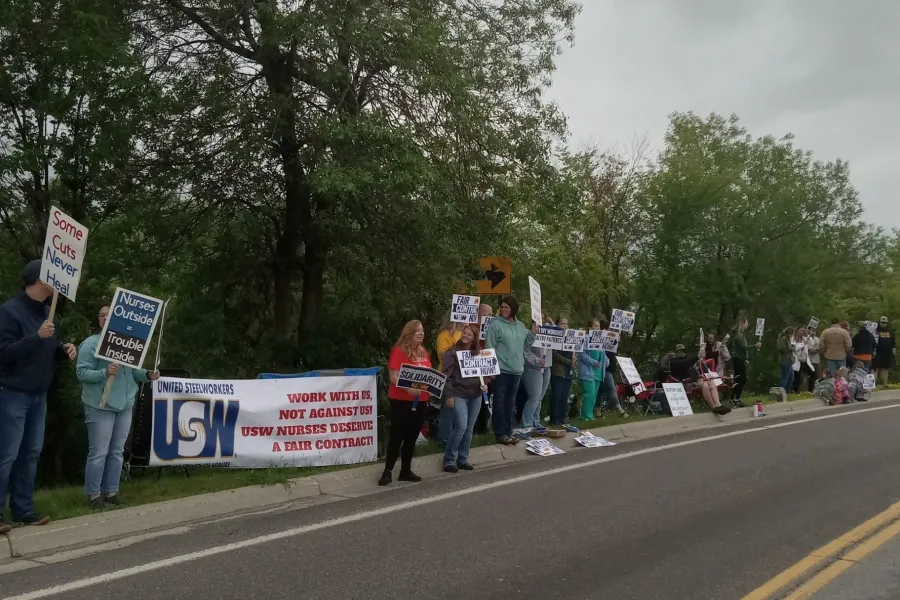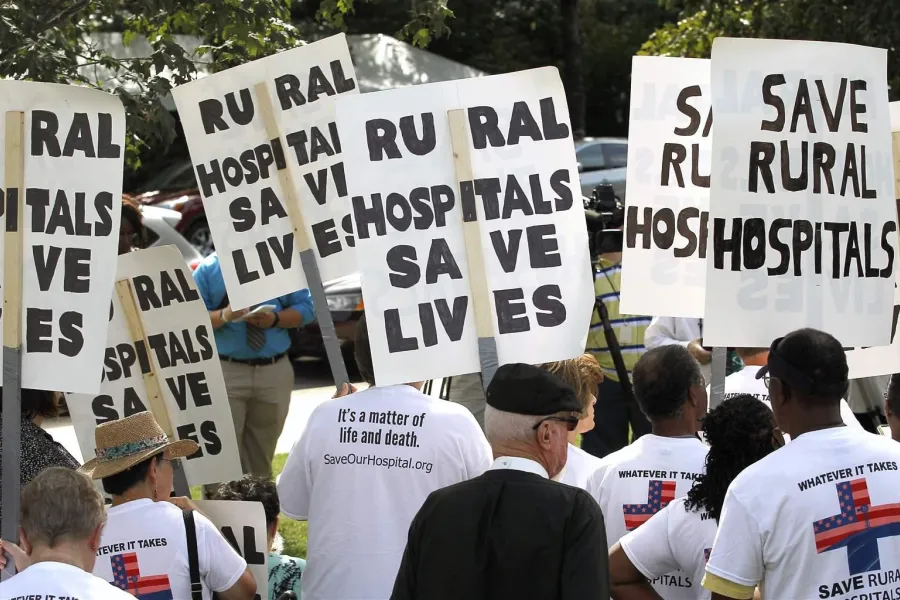Blog
Steelworkers Stand With the MNA!
Informational Picket Held at Chisholm Health Center
Letting Rural Health Care Bleed Out
Recent
Green Book Update - June 22
Red Book Negotiations
New Contract Ratified at Pine Medical Center
PMC Tentative Agreement Vote
Green Book Negotiations Postponed
Regional Contract Update



